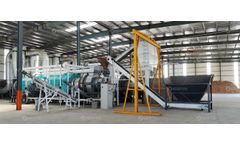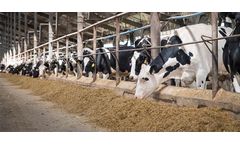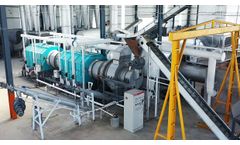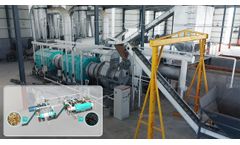Of Biochar Pyrolysis Production Articles & Analysis: Older
151 articles found
Rice husk carbonization is an increasingly popular method for utilizing agricultural waste, offering significant economic benefits to both small-scale and large-scale producers. By converting rice husks into valuable biochar, the process not only provides an eco-friendly waste disposal solution but also opens up a range of commercial opportunities. The following explores the economic advantages ...
Biochar production is emerging as a transformative solution in agricultural management, particularly in addressing the environmental challenges associated with livestock farming. ...
The moisture content of the feedstock is also an important factor—biomass with high moisture content can negatively affect the pyrolysis process, leading to inefficient production and lower-quality biochar. ...
Among the various biomass sources used for biochar production, rice husk is a particularly abundant and promising feedstock, especially in regions with significant rice production. ...
If you're curious about sustainable solutions for waste management and carbon recycling, Beston Group offers a wide range of innovative technologies, including charcoal making machines. One of the most engaging ways to learn about these machines and the charcoal production process is through our video demonstrations. Here's what you can expect to see when you watch a Beston Group charcoal making ...
Biochar is a carbon-rich material produced through the pyrolysis of organic matter, such as agricultural waste, forestry residues, and municipal solid waste. ...
As the world faces increasing challenges related to climate change and environmental degradation, innovative solutions like biochar production equipment are gaining significant attention. Biochar, a stable form of carbon produced through pyrolysis of organic materials, not only helps in soil enhancement but also offers a ...
One such innovation is the rice husk carbonizer, a device designed to convert rice husks into valuable biochar through pyrolysis. This process not only addresses the challenge of rice husk waste but also offers numerous benefits for agricultural practices. ...
The production of biochar, however, hinges on the quality and efficiency of the machinery used. ...
Pyrolysis:The core of the carbonization process is pyrolysis, where wood is heated to high temperatures (typically between 400°C and 700°C) in a low-oxygen environment. ...
Biochar production equipment encompasses a range of machinery designed to facilitate the pyrolysis process. ...
Biochar pyrolysis equipment represents a cornerstone in the quest for sustainable agriculture and environmental stewardship. ...
Through controlled heating, biomass undergoes a series of chemical reactions, yielding valuable products like biochar, bio-oil, and syngas.The Biomass Pyrolysis Process: Unraveling the Mechanisms At the core of biomass pyrolysis lies the pyrolysis reactor, a sophisticated apparatus designed to subject the ...
Step 3: Product Recovery As pyrolysis progresses, the feedstock undergoes transformation into valuable products such as biochar, bio-oil, and syngas. These products are released from the pyrolysis chamber and routed to collection or recovery systems within the machine. ...
Understanding Coconut Shell Charcoal Production Coconut shell charcoal making machines are instrumental in the production of high-quality charcoal from coconut shells. ...
Unlike traditional stationary biochar production facilities, mobile biochar machines offer unparalleled flexibility and scalability, enabling farmers, foresters, and environmentalists to deploy biochar production directly in the field or forest.Key Components of a Mobile Biochar MachineBiomass ...
As regulatory frameworks prioritize carbon neutrality and sustainable practices, the demand for biochar technologies is poised for exponential growth. The Economics of Biochar Production Central to the profitability analysis of biochar making machines is the economic feasibility of biochar ...
Understanding Biochar and Its Production Process Biochar, a carbon-rich material derived from the pyrolysis of biomass, holds immense potential in mitigating environmental challenges while offering versatile applications. The biochar production equipment facilitates the ...
Energy Recovery through Syngas Utilization The pyrolysis process yields more than just biochar; it generates syngas as a valuable by-product. Biochar pyrolysis equipment optimally utilizes this syngas for energy recovery. ...
Their design is meticulously calibrated to maximize the charcoal production process while minimizing the environmental footprint. Eco-Friendly Charcoal Production One of the standout features of small charcoal making machine is the commitment to eco-friendly practices. Employing advanced carbonization technology, these machines ensure a cleaner and greener ...





